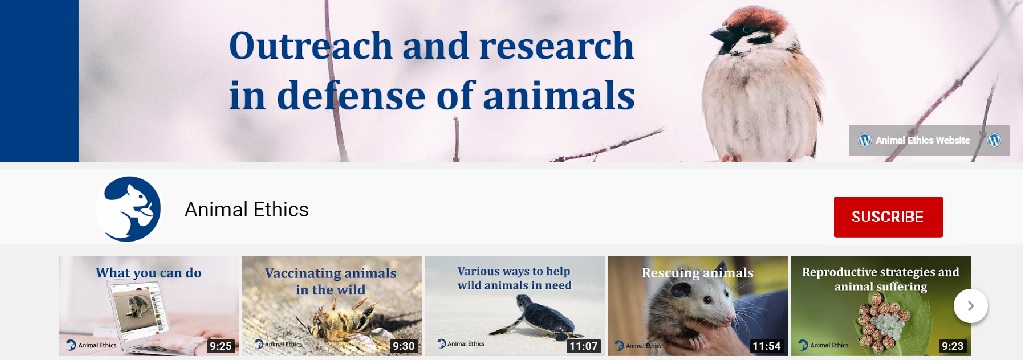Watch the first module of our video course about wild animal suffering
We are happy to announce that we’ve released the entire first module of our video course on wild animal suffering. This module is available as a playlist. It covers the situation of animals in the wild as individuals, including the many harms they suffer, and ways of improving their situation, including some of the ways this is already being done. The 13 videos of this module (including an overview, an introduction, and 11 different units) can be seen here:
Introduction to wild animal suffering: video course (1st module)
Summary |
Introduction to wild animal suffering |
Unit 1 |
What is wild animal suffering? |
Unit 2 |
Harms suffered by animals due to weather conditions and natural disasters |
Unit 3 |
Diseases and parasitism |
Unit 4 |
Hunger and psychological suffering |
Unit 5 |
Conflicts |
Unit 6 |
Injuries due to accidents |
Unit 7 |
Reproductive strategies and wild animal suffering |
Unit 8 |
Rescuing animals |
Unit 9 |
Various ways of helping animals |
Unit 10 |
Vaccinating animals in the wild |
Unit 11 |
What you can do |
Wild animal suffering is a very important issue that many people are unaware of or have serious misconceptions about. Education on the subject is therefore extremely important.
If you’re eager to look ahead to content similar to what the course covers, we’ve already released the complete companion guide to the course. It expands slightly on the content of the course and has extensive references that also serve as references for the videos.
You can subscribe to our YouTube channel and click the bell icon beside it to be notified when we release new videos.
The next module of this course will cover the moral consideration of animals. In it we explain what different ethical theories have to say about our treatment of animals. We describe what speciesism is and why it should be rejected. Finally, we cover what sentience is, why it is important, and which animals are sentient.
The final module will cover welfare biology, the study of animals living in the wild with respect to their wellbeing, and how this field can be advanced in the future.
This course improves the reach of our content by making it more accessible and convenient. We think that this video series will provide people with a more in-depth education on the subject than we have been able to do with our articles. Subtitles for the videos are available in English and Portuguese.
The video course has been possible thanks to Animal Charity Evaluators, who funded this work through its Effective Animal Advocacy Fund.
Animal Ethics is one of the very few sources of advocacy and information on this very important topic. If you want to help us continue to make important content such as this please consider supporting our work.
